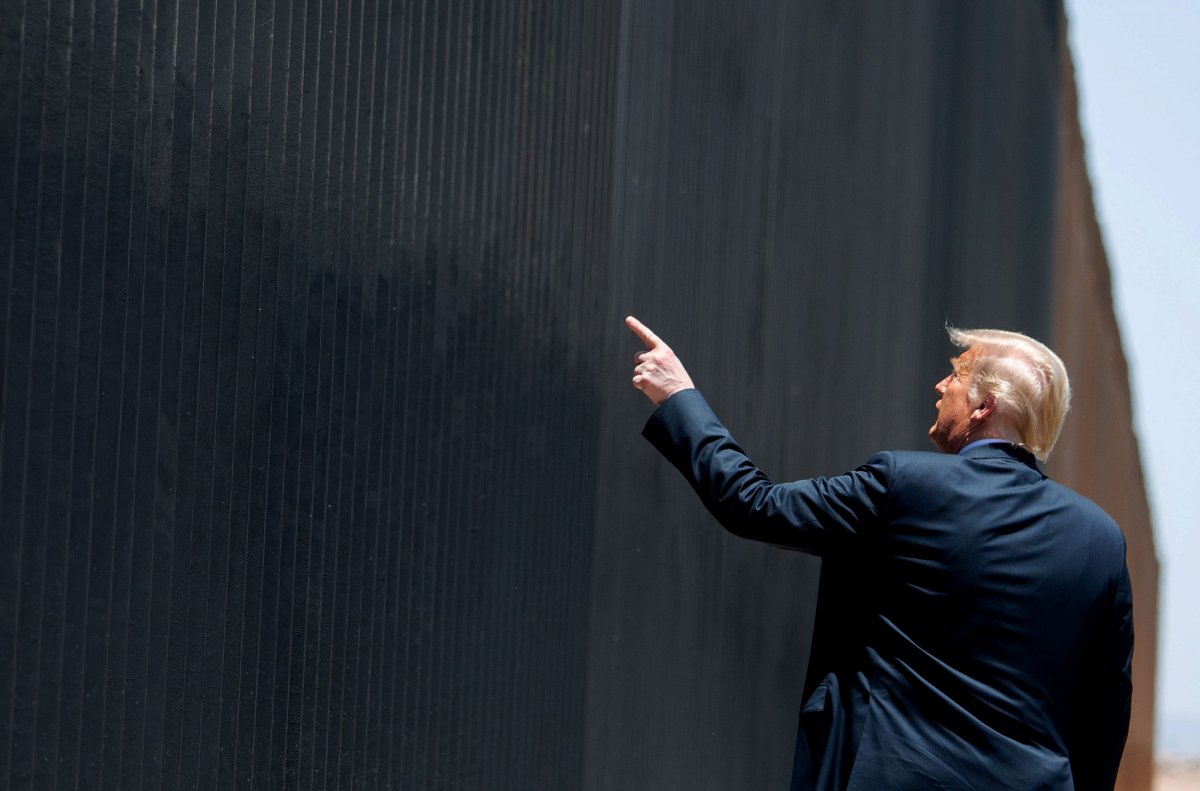President Donald Trump told a rally in Janesville, Wisconsin, on Saturday that his controversial Mexican border wall is "almost built," though the White House has struggled to make progress on the proposed barrier that became a touchstone of his "Make America Great Again" platform.
The promise to build a wall along the entire frontier with Mexico—some 1,933 miles—was central to Trump's 2016 campaign, and encapsulated the nationalistic, anti-immigration rhetoric that runs through the president's "America First" ideology. The president promised to build the wall and to make Mexico pay for it, but has failed on both counts.
"Build the wall!" a supporter at the rally shouted as the president delivered his remarks in Janesville on Saturday. Trump replied: "The wall is almost built."
Before Trump took office, there were 354 miles of pedestrian barriers and 300 miles of anti-vehicle fencing along the frontier—a total of 654 miles.
The Trump administration has only been able to construct 360 miles of the border wall, according to the U.S. Customs and Border Protection agency website. Of this, only five miles is newly constructed in areas where no barrier previously existed. The rest of the work has been adding secondary barriers, reconstruction or repair work on existing infrastructure.
The Congressional Research Service said in a January report that Trump's refurbishments pose "a formidable barrier, but it is not the high, thick masonry structure that most dictionaries term a 'wall.'"
Trump's additions cover less than 19 percent of the entire border. From the start, experts and lawmakers warned that a full frontier barrier would have been technically infeasible and prohibitively costly. Estimates stretched to $45 billion for the whole structure, a cost that would be inflated by maintenance costs and private land acquisitions.
Aside from the human rights and financial concerns raised by wall opponents, experts also warned that Trump's proposed wall would have dire environmental consequences, dissecting and disrupting border ecosystems.
Trump and his allies initially side-stepped the issue of costs by claiming Mexico would pay for the wall. Former Mexican President Enrique Pena Nieto said soon after Trump's election that his country would not pay for the barrier, adding: "Mexico does not believe in walls."
The president instead drew on military budgets and FEMA national disaster relief funds to pay for his project. Private fundraising efforts also sought to buoy the administration's wall.
But one of these—We Build the Wall, founded by military veteran Brian Kolfage with leadership from former GOP Secretary of State of Kansas Kris Kobach and former Trump chief strategist Steve Bannon—was hit with charges of fraud.
The organization raised more than $25 million, but all Kolfage, Kobach and Bannon are all accused of siphoning off funds illegally for personal use.

Uncommon Knowledge
Newsweek is committed to challenging conventional wisdom and finding connections in the search for common ground.
Newsweek is committed to challenging conventional wisdom and finding connections in the search for common ground.
About the writer
David Brennan is Newsweek's Diplomatic Correspondent covering world politics and conflicts from London with a focus on NATO, the European ... Read more
To read how Newsweek uses AI as a newsroom tool, Click here.








